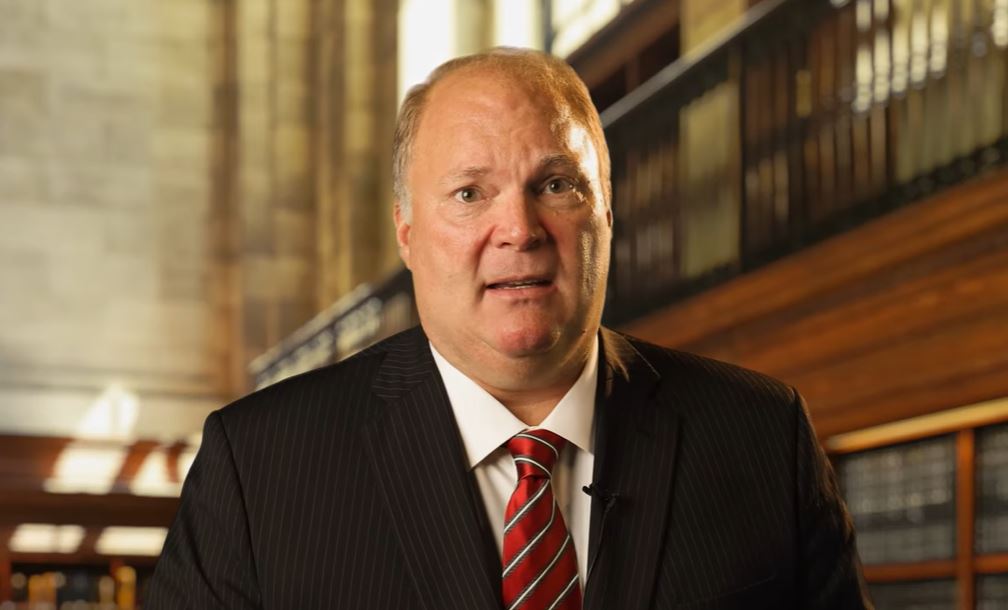The lawyer handling the discipline case against Michael Gableman argued a three-year suspension of the former justice’s law license was justified because Gableman “certainly knew better” than to violate numerous conduct standards while reviewing the 2020 election.
In a report filed with the referee overseeing the case, Office of Lawyer Regulation attorney Donald Schott acknowledged that the 10-count complaint is in a “league of its own” due to several factors, including Gableman’s status as a former Wisconsin justice. Still, looking at the totality of the violations and Gableman’s former post, the proposed penalty “easily passes the proportionality test.”
Among other things, the filing took Gableman to task for the repeated lies he told while working at the behest of Assembly Speaker Robin Vos, R-Rochester, to conduct a 2020 election review. That includes numerous misrepresentations in public and in court filings over efforts to compel the mayors of Green Bay and Madison to provide depositions at his private office rather than in public.
>> WisPolitics is now on the State Affairs network. Get custom keyword notifications, bill tracking and all WisPolitics content. Get the app.
>> WisPolitics is now on the State Affairs network. Get custom keyword notifications, bill tracking and all WisPolitics content. Get the app or access via desktop.
Gableman accused Mayors Eric Genrich and Satya Rhodes-Conway of being part of a “cover-up” and failing to cooperate with his review. Schott noted the offices of both mayors had, in fact, cooperated with Gableman’s demands to turn over various records with the understanding that would negate the need for a deposition.
“Gableman’s attitude toward the truth in this matter was decidedly unprofessional,” Schott wrote.
The report is part of the stipulation that Gableman reached with OLR to resolve the discipline case against him. The former justice agreed to the proposed penalty last month after acknowledging he couldn’t successfully defend himself against the allegations.
As part of that process, Schott was required to justify to the referee overseeing the case the proposed three-year suspension of Gableman’s law license. The referee will make a recommendation to the state Supreme Court, which will have final say on any discipline Gableman faces.
Schott listed other discipline cases against attorneys for similar conduct and the penalties that were handed down. Considering the dishonesty that was a factor in Gableman’s case, Schott noted a 1986 case involving an attorney who submitted a false medical report in an attempt to obtain money for his client and himself. The referee recommended an 18-month suspension of the attorney’s law license, but the court imposed a three-year penalty.
In another example, a lawyer improperly spent client funds from a trust account and then lied about it to a court and the client. The parties stipulated a three-year suspension, but the court imposed a 4.5-year penalty.
Schott wrote Gableman has no prior record of attorney discipline, calling it a mitigating factor in the case. He also cited at least five aggravating factors: dishonest or selfish motives; a pattern of misconduct; multiple offenses; a refusal to acknowledge the wrongful conduct; and a lack of remorse.
“Other than stipulating he ‘cannot successfully defend against the allegations contained in the Complaint,’ to date, Gableman has not publicly acknowledged the wrongful nature of his conduct,” Schott wrote. “He certainly has not expressed any remorse for it.”



